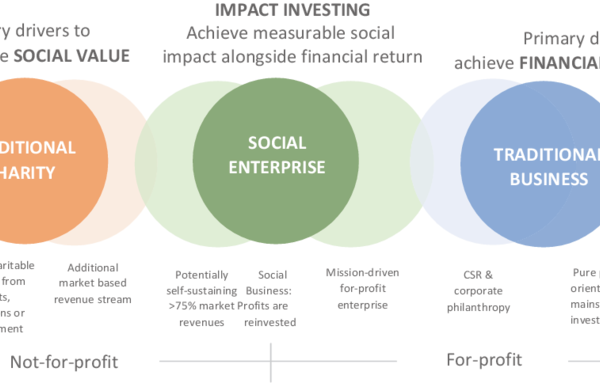In recent years, there has been a growing interest in the concept of social enterprise. Social enterprises are businesses that are driven by a social or environmental mission, and they use their profits to support their mission. As more and more individuals and organizations look for ways to create positive social impact, transitioning to a social enterprise can be an appealing option. However, making the transition can also be challenging. In this blog post, we will explore the benefits and challenges of transitioning to a social enterprise, and provide some tips to help you make the shift.
Benefits of Transitioning to a Social Enterprise
There are several benefits to transitioning to a social enterprise. Here are a few of the most important:
- Social Impact: By transitioning to a social enterprise, you can have a direct impact on social and environmental issues that you care about. Rather than just generating profits for shareholders, your business can become a vehicle for positive change.
- Branding: Being a social enterprise can help to differentiate your business from competitors. Consumers are increasingly looking for socially responsible companies to do business with, and being a social enterprise can help to build your brand and reputation.
- Employee Engagement: Working for a social enterprise can be highly motivating for employees, as they are able to contribute to a higher purpose beyond just making a profit.
Challenges of Transitioning to a Social Enterprise
While there are many benefits to transitioning to a social enterprise, there are also some challenges that need to be considered. Here are a few of the most important:
- Financial Sustainability: Social enterprises need to be financially sustainable in order to achieve their social mission. This can be challenging, as social enterprises often have higher costs than traditional businesses, and may not have access to the same financing options.
- Measuring Impact: Social enterprises need to be able to measure their social impact in order to demonstrate the value of their work. This can be challenging, as social impact is often difficult to quantify.
- Balancing Mission and Profit: Social enterprises need to balance their social mission with the need to generate profits. This can be challenging, as there may be trade-offs between social impact and financial sustainability.
Tips for Transitioning to a Social Enterprise
If you are considering transitioning to a social enterprise, here are some tips to help you make the shift:
- Start with a Clear Mission: Before transitioning to a social enterprise, it is important to have a clear understanding of the social or environmental issue that you want to address. This will help to guide your business decisions and ensure that you stay focused on your mission.
- Seek Expert Advice: There are many resources available for social entrepreneurs, including organizations that provide training, mentoring, and networking opportunities. Seek out these resources to help you navigate the transition to a social enterprise.
- Develop a Business Plan: Like any business, social enterprises need a solid business plan in order to be successful. This should include a clear financial plan, as well as a plan for measuring social impact.
- Engage Stakeholders: Social enterprises need to engage a wide range of stakeholders, including customers, employees, investors, and community members. Engage these stakeholders early and often to ensure that your business decisions are aligned with your mission.
- Be Patient and Persistent: Transitioning to a social enterprise can be a long and challenging process. It is important to be patient and persistent, and to stay focused on your mission and values.
Conclusion
Transitioning to a social enterprise can be a challenging but rewarding journey. By focusing on your mission, seeking expert advice, developing a solid business plan, engaging stakeholders, and being patient and persistent, you can create a business that is both financially sustainable and socially impactful.



